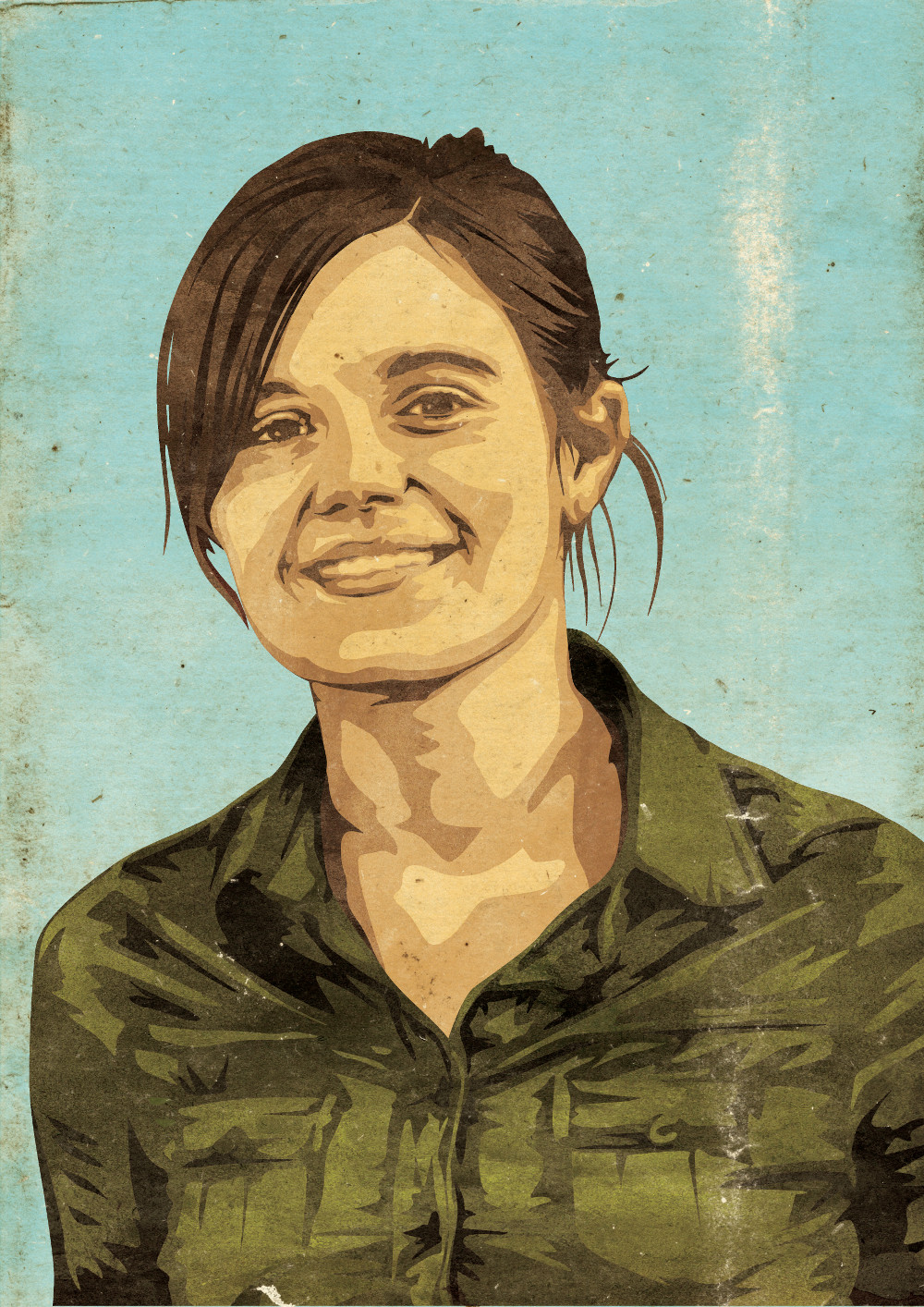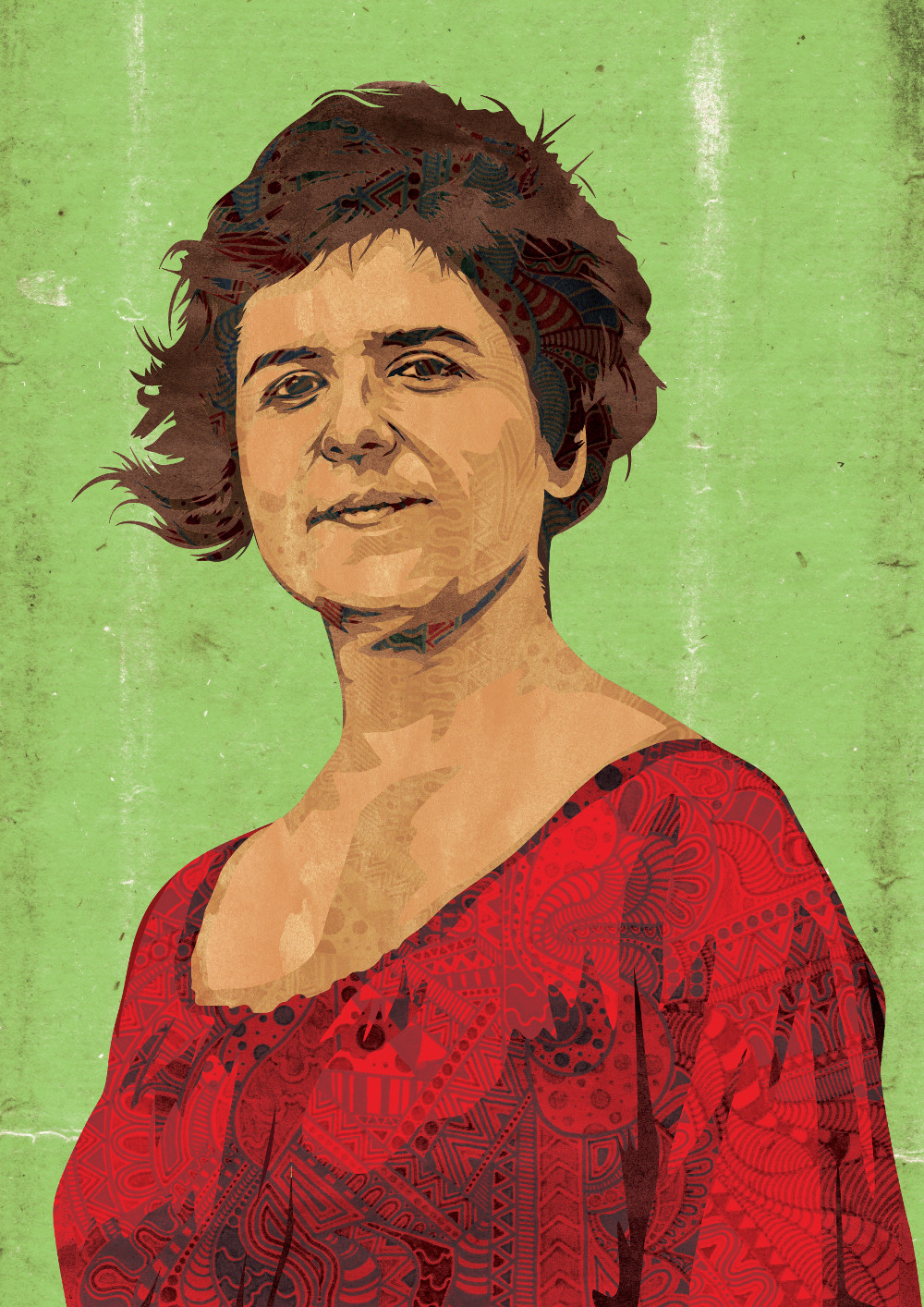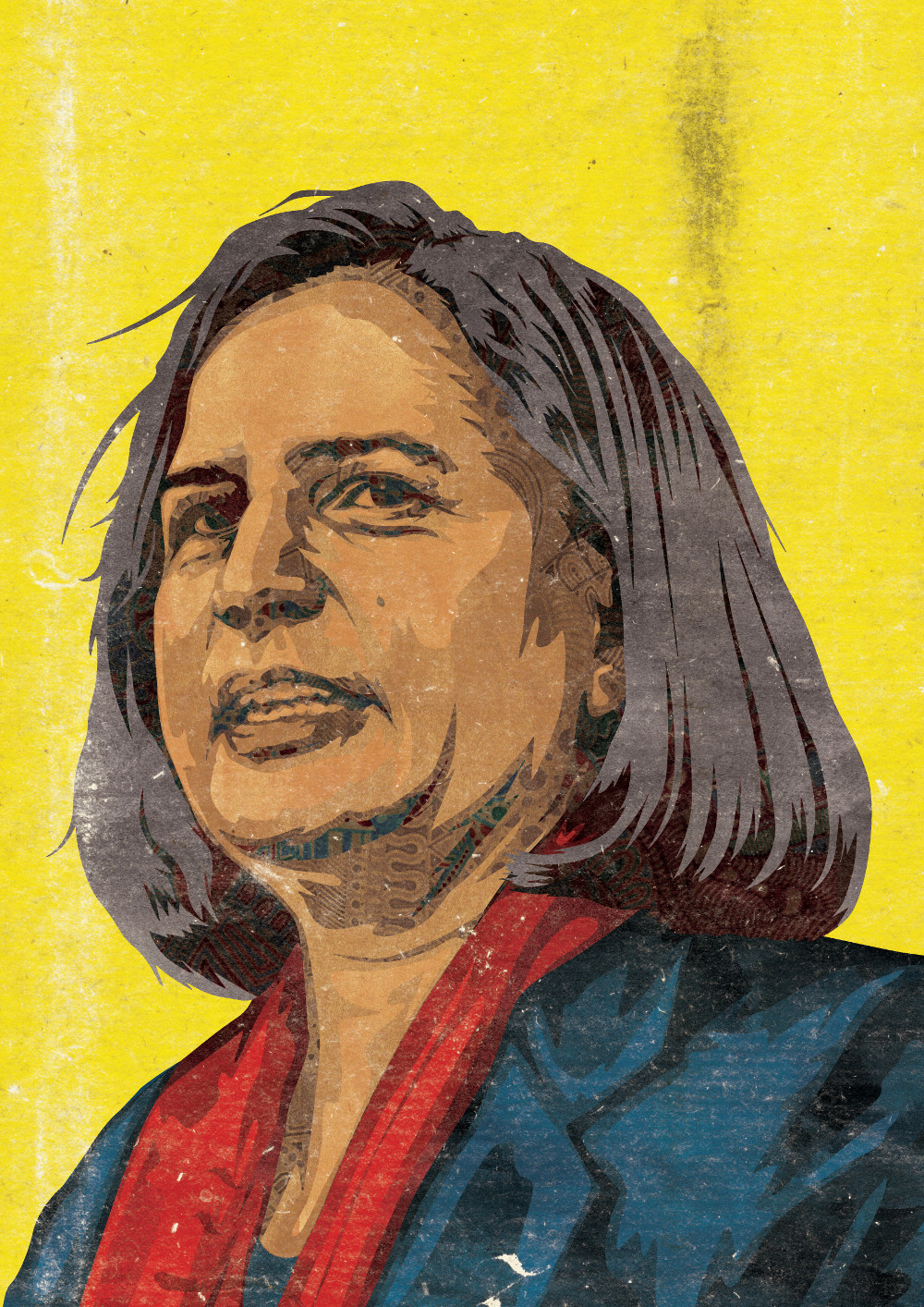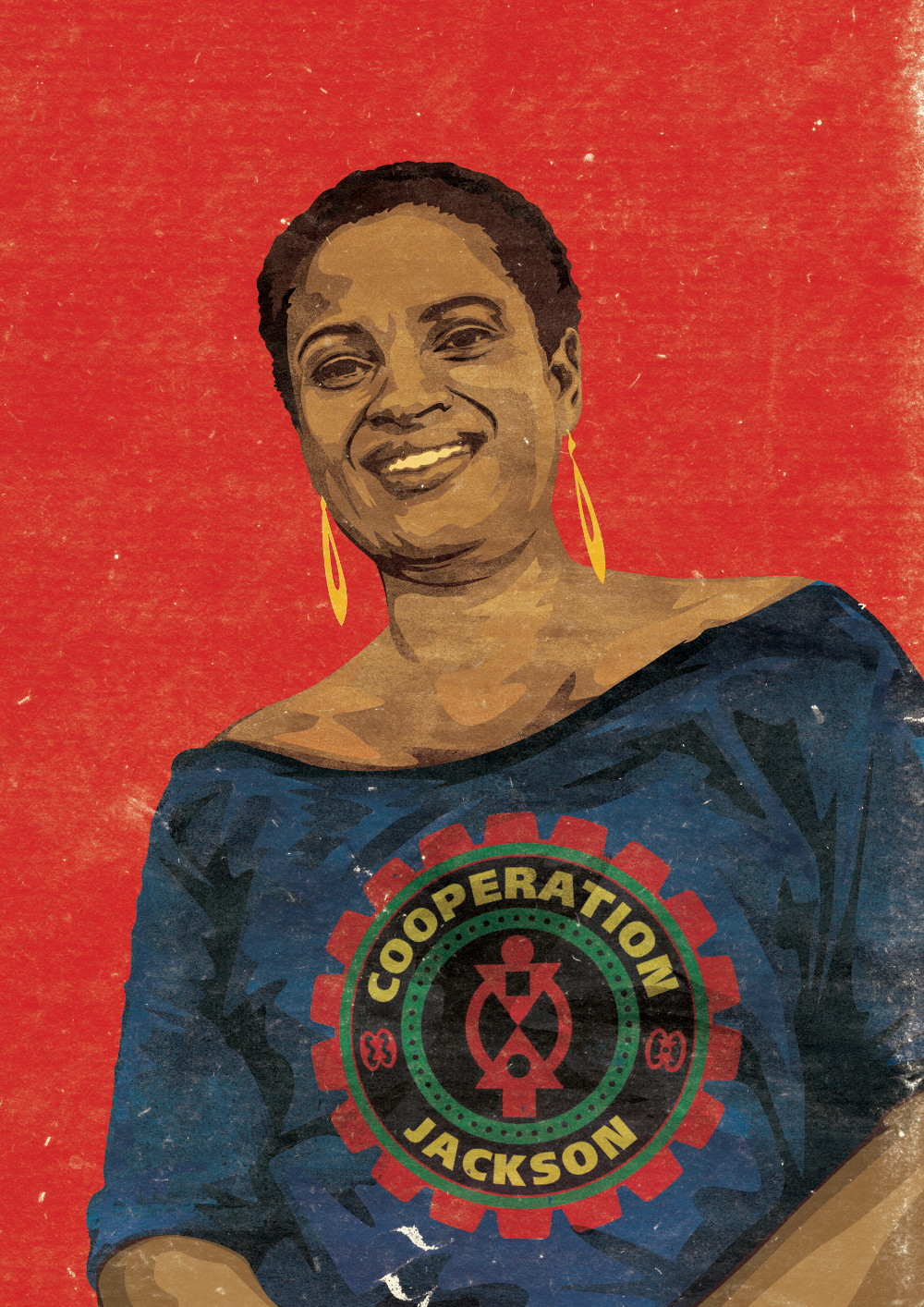A Different Way of Doing
Beside turning local institutions into mechanisms of self-governance, municipalism also has the potential to feminize politics in a way that action at the national level does not.
Municipalism and the Feminization of Politics
- Issue #6
- Authors
Municipalism is generating increasing interest around the world as a strategy to challenge the neoliberal political and economic order and respond to demands for greater democracy. The citizen platforms that govern the major cities in Spain, in particular, as well as examples like Ciudad Futura in Argentina, the “Indy Towns” in the UK and democratic confederalism in Kurdistan, for all their missteps and limitations, have given us a glimpse of the transformative potential of local action. The recent international municipalist summit “Fearless Cities” in Barcelona, at which over 100 municipalist platforms from every continent were represented, was testament to the growth of this global movement.
Municipalism, as we understand it, is defined by a set of related characteristics. First, by the construction of a distinctive political organization that reflects the diversity of the local political landscape and responds to local issues and circumstances. Second, by open and participatory decision-making processes that harness the collective intelligence of the community. Third, by an organizational structure that is relatively horizontal (for example, based on neighborhood assemblies) and that guides the work of elected representatives. Fourth, by a creative tension between those inside and outside of local institutions: municipalism understands that the capacity for institutional action depends on strong, organized movements in the streets that push elected leaders. For this reason, the movement welcomes pressure from outside the institutions and seeks to open up genuinely democratic decision-making mechanisms within them.
Finally, municipalism seeks a role for local institutions that goes beyond simply that of the lowest rung on the ladder of government — it wants them to become mechanisms of self-governance. Understood in this way, municipalism is not just a thing of big cities. The movement can and does play a significant role in small towns, districts, neighborhoods and rural areas.
We think the municipalist strategy is a powerful one for a number of reasons. Because through small victories it can demonstrate that there are alternatives to the status quo. Because many of the negative consequences of neoliberalism are felt most keenly at the local level, particularly in cities, for example through speculation on housing, the privatization of the commons and political corruption. And because local institutions, being the closest level of government to the people, offer the greatest opportunity to create a participatory democracy that goes beyond voting once every four years. But there is another, different and complementary argument for municipalism: it has the potential to feminize politics in a way that political action at the national or transnational level does not.
The Transformative Potential of Ways of Doing
In a previous article for ROAR Magazine, we argued that the feminization of politics, beyond its concern for increasing presence of women in decision-making spaces and implementing public policies to promote gender equality, is about changing the way politics is done. This third dimension of feminization aims to shatter masculine patterns that reward behaviors such as competition, urgency, hierarchy and homogeneity, which are less common in — or appealing to — women. Instead, a feminized politics seeks to emphasize the importance of the small, the relational, the everyday, challenging the artificial division between the personal and the political. This is how we can change the underlying dynamics of the system and construct emancipatory alternatives.
We don’t make this argument from an essentialist perspective. Gender roles are, of course, the product of patriarchy itself. Rather, we see a need for “feminine” values and practices because the predominance of “masculine” styles pushes women, who have not been socialized into using them, out of the center of the political arena. Such a shift in the way politics is done implies attacking patriarchy at its root: through the practices where gender roles themselves are reproduced. What is more, if our goal is to deepen democracy and empower people, promoting “feminine” ways of doing — collaboration, dialogue, horizontality — will help to include all sorts of disadvantaged groups and should be a priority independent of the question of gender.
The contemporary municipalist movements we most admire all take a distinctive, “feminine” approach to politics. They combine radical goals with concrete action. In this way, municipalism resists becoming a struggle for power at any cost, or falling into the trap of paralyzing ideological purity — two “masculine” tendencies familiar on the traditional left. Municipalism is characterized by a dynamic of learning-by-doing, of trial and error. This is, of course, deeply linked to the nature of many local issues, such as access to housing, water and electricity, transport and waste management, all of which demand immediate and complex responses rather than the abstract debates that so often characterize progressive organizations.
The Feminine Process of Construction and Organization
One of the limits of national political projects is their phobia of internal disagreement, their urge to control the narrative from the top down. This “masculine” dynamic, fruit of the need to put forward a coherent project, can’t hope to meet the diverse demands and priorities of the population of any large geographical area. In the end, such projects have a limited ability to garner support because it’s impossible for any single political project to be a perfect fit for everyone in a whole country. This is, in part, the cause of the frequent divisions within the left at a national level in many countries.
By contrast, municipalism turns diversity to its advantage: it allows for differences between political projects, according to local contexts. For example, municipal platforms in Spain have different names and include different party alliances in each city. Each municipalist platform in Spain also has its own political priorities, for example, defending the right to housing in the face of the tourism lobby in Barcelona. While it remains a challenge, there is far greater capacity to manage and harness political diversity at the local level, where people know one another and share concrete goals.
Feminizing politics also means introducing horizontal decision-making and new forms of leadership. Yet, however much a regional or national political organization wants to put decision-making in the hands of grassroots activists, it faces a far greater challenge in doing so than a municipal platform would. At the smaller, local scale, neighborhood assemblies can have a direct impact in the decisions of the platform and its elected representatives.
This can be seen in the case of Barcelona en Comú, which has over 1,700 activists working relatively autonomously in neighborhood assemblies, policy groups and committees. While the communication of information between activists, the organizational leadership and the institution remains a great challenge, it is achievable. Indeed, if creating decision-making mechanisms that empower grassroots activists can be done anywhere at all, it’s at the municipal level, where face-to-face interaction is possible.
In terms of leadership, it’s noteworthy that it is municipal movements that are pioneering the creation of new, collective models. The Kurdish freedom movement is particularly advanced in this regard — all its leadership positions are shared between men and women (towns even have male and female co-mayors, for example). This both prevents the concentration of executive power in the hands of men and changes the way that executive power is exercised. While this kind of mechanism hasn’t been used at an institutional level in many countries, in Spain, Barcelona en Comú has shunned the presidential leadership model of national political parties and created an executive board of eight people and a coordination team of 40, each with a minimum proportion of 50 percent women.
The Feminine Narrative
Every political project must appeal to a “we” in order for people to identify with it. In national projects, this “we” usually ends up being the nation, however it is defined. This is problematic because it buys into the frame of the nation state, which has patriarchal, colonial and capitalist origins that we should be questioning rather than reinforcing. The kinds of collective identities that spring from the nation state are, at worst, sexist, xenophobic and classist or, at best, so emptied of content that they end up not appealing to anyone.
With the authoritarian right on the rise around the world, it’s now more necessary than ever to seek out alternative collective identities that are powerful, inclusive and offer security in times of uncertainty. Municipalism offers this possibility through the construction of a local “we” that is based on residence and shared concerns rather than legal citizenship or ethnic identity.
As well as shunning patriarchal identities, municipal narratives also tend to be less aggressive and confrontational than those of national political parties. In Spain, for example, while at national level Podemos attacks la casta and la trama (the political and economic elites), municipal platforms in the country speak more in terms of promoting the “common good.” Municipal narratives also tend to avoid theoretical abstraction in favor of concrete goals, with a focus on the practical aspects of problems. By way of example, while some new national parties in Spain communicate in Gramscian terms of “hegemony,” municipal platforms tend to talk about concrete issues like air quality, the use of public space or the price of rent, putting the emphasis on how these affect people’s daily lives.
Beyond Municipalism
Of course, municipalism is not an end in itself. It’s a means by which to achieve the vital goals we have explored above: fighting for gender justice, harnessing diversity, constructing democratic organizations and collective leadership and stopping the far right. Municipalism shouldn’t renounce working at the national or transnational level. In fact, committed municipalists must take on this responsibility, just as the platforms in Spain are doing by standing up to the central government to call for refugee intake, local autonomy to re-municipalize basic services and the closure of immigrant internment centers. This kind of networked collaboration, which is grounded in local movements and new ways of doing, is a good way to start to act at other levels.
It is essential that any new political projects at national or European level are built on solid foundations and rooted in local organizations. It’s only at the local level that ways of doing politics can be feminized through everyday life. History shows that national electoral victories of the left have failed to feminize politics, which continues to be dominated by men and their ways of doing. That’s why we think that municipalism should be the foundation of any multi-level strategy. Anyone who tries to build a house starting with the roof will end up without a home, without a neighborhood and without people. And without people, revolution is impossible.
Source URL — https://roarmag.org/magazine/municipalism-feminization-urban-politics/
Next Magazine article
Bakur Rising: Democratic Autonomy in Kurdistan
- Nazan Üstündağ
- July 21, 2017







